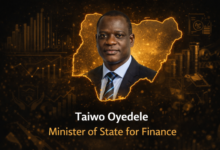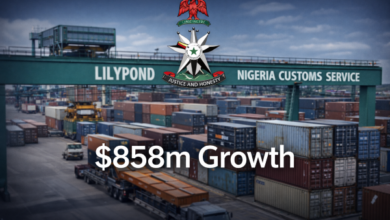UN Calls for Renewed Investment in MSMEs to Drive Inclusive Growth in Nigeria

The United Nations and its development partners have issued a strong call for renewed investment in Nigeria’s Micro, Small and Medium-sized Enterprises (MSMEs), describing the sector as a vital catalyst for inclusive growth, job creation, and national resilience.
The appeal was made on Monday in Abuja during the 2025 International MSMEs Day celebration, hosted by a coalition of UN agencies including the United Nations Industrial Development Organisation (UNIDO), International Labour Organisation (ILO), UN Development Programme (UNDP), UN Information Centre (UNIC), and the World Intellectual Property Organisation (WIPO).
MSMEs: Nigeria’s Underleveraged Growth Engine
In his keynote remarks, Mr. Reuben Bamidele, National Programme Officer at UNIDO, underscored the significance of MSMEs in Nigeria’s economic structure, noting that over 40 million MSMEs currently serve as the backbone of employment, production, and innovation across the country.
“MSMEs are the lifeblood of Nigeria’s economy. They power local industries, absorb labour, and catalyse innovation. Investing in their growth is non-negotiable for any serious economic transformation agenda,” Bamidele said on behalf of UNIDO’s Sub-regional Director, Mr. Philbert Johnson.
This sentiment was echoed by other UN agencies who highlighted MSMEs’ role in GDP contribution, social inclusion, and resilience-building, particularly among women and youth-led enterprises.
Job Creation and Social Transition
Dr. Vanessa Phala, Country Director of the ILO, represented by Mr. Stephen Agugua, emphasized the importance of MSMEs in facilitating Nigeria’s ecological and social transition.
“The ILO is engaging stakeholders to identify pain points and design solutions that ensure MSMEs remain job creators in a changing climate and economic landscape,” she said.
Similarly, Ms. Claire Henshaw of the UNDP, speaking on behalf of Deputy Director Ms. Varsha Redkar-Palepu, stated that MSMEs are not only central to job creation but also essential to social cohesion, especially in underserved and economically marginalized communities.
“Placing MSMEs at the heart of Nigeria’s development architecture will translate opportunities into tangible outcomes,” Henshaw stressed.
Policy and Private Sector Synergy Needed
Representing the Nigeria Employers’ Consultative Association (NECA), Dr. Chinedu Nnabuihe, Managing Director of ProHealth, lauded the UN’s convening power and called for more collaborative policy support.
“Despite persistent challenges—limited access to finance, inadequate infrastructure, and rising input costs—MSMEs have shown resilience and resourcefulness,” Nnabuihe noted. “They need more than lip service; they need access to credit, digital tools, and favourable policy environments.”
NECA reaffirmed its support for reforms and programmes that will unlock the full potential of MSMEs as innovation hubs and productivity accelerators.
Institutional Stakeholders Show Support
The event attracted senior representatives from major MSME-related institutions, including:
- Small and Medium Enterprises Development Agency of Nigeria (SMEDAN)
- Nigerian Association of Small Scale Industrialists (NASSI)
- Nigerian Association of Small and Medium Enterprises (NASME)
- Corporate Affairs Commission (CAC)
- National Insurance Commission (NAICOM)
- Nigeria Social Insurance Trust Fund (NSITF)
- Abuja Chamber of Commerce and Industry
Key Highlights and Next Steps
Event highlights included:
- A curated MSME product exhibition showcasing innovation across sectors
- Technical sessions on intellectual property rights, facilitated by WIPO
- Government–UNDP partnership reports outlining practical engagement with small businesses
- Interactive forums identifying scalable financing models and digital transformation pathways
BRANDECONOMY’s Insight:
The UN’s unified stance on MSME development signals an important shift in development priorities—from donor-driven aid to enterprise-led transformation. Nigeria’s vast MSME population remains a largely untapped asset, and with strategic investment in credit, market access, infrastructure, and capacity-building, the sector could become the engine of post-oil economic growth. However, this requires bold coordination between government, development partners, and the private sector to remove structural bottlenecks.










